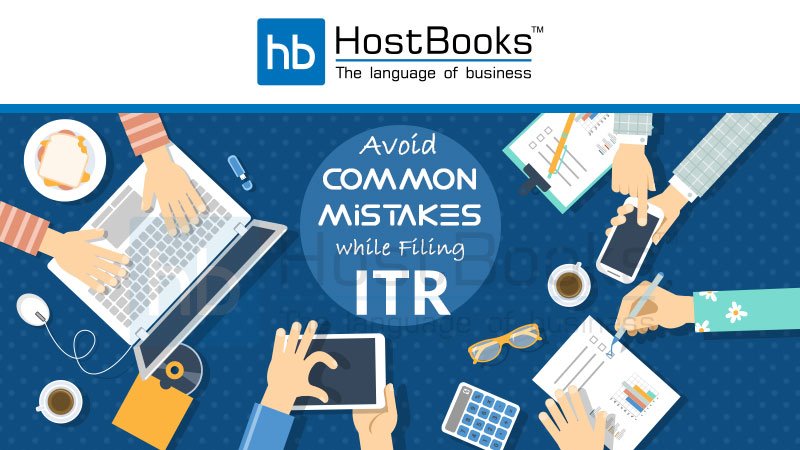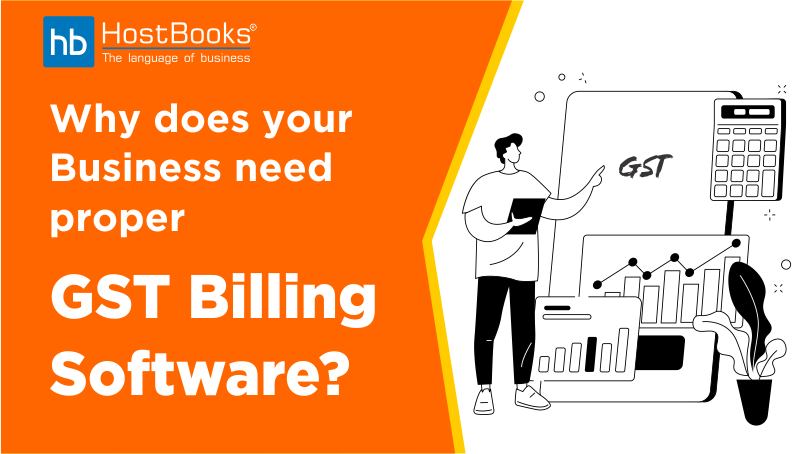
Major Takeaways from the 28th GST Council Meet (New Delhi)
July 23, 2018
What are Debit Notes & Credit Notes Under GST?
July 23, 2018Paying the right tax in the right way at the right moment is the sign of a responsible citizen and this boosts the growth of the country too.
If one seeks to file one’s Income Tax Returns perfectly, containing no mistakes then going through this blog would be a wise decision.
Do keep in mind the following points that cause common mistakes while filing Income Tax Returns:
1.) Getting the Incorrect Form-
It is of great importance to get the appropriate ITR form for filing of returns. Failure to do so can result in your return not getting processed by the income tax department. The selection of ITR form depends on the nature of income and the category to which the taxpayer belongs.
However, below-mentioned are the different kinds of ITR Forms, to be chosen:
A: ITR 1 – This particular ITR Form is also known as ‘SAHAJ’ and this can be used by an resident individual whose total income for the assessment year 2019-20 includes:-
- Income from Salary/ Pension; or
- Income from One House Property (excluding cases where loss is brought forward from previous years); or
- Income from Other Sources (excluding Winning from Lottery and Income from Race Horses)
But don’t choose ITR 1 Form If-
- Your total Annual Income Exceeds ₹ 50 Lakhs
- You possess any Foreign Asset
- You have Taxable Capital Gains
- You enjoy Income from Business or Profession
- You have Income from more than One House Property
- You have agriculture income more than ₹5,000
- If individual is eitherDirector in a company or has invested in Unlisted Equity Shares
B: ITR 2 – This ITR Form can be chosen either by an individual or by a Hindu Undivided Family (HUF) for the AY 2019-20;
- Income from Salary/Pension; or
- Income from House Property; or
- Income from Other Sources (including Winnings from Lottery and Income from Race Horses).
- If only the Annual income from the above sources exceeds ₹ 50 lakhs
- Income from Capital Gains; or
- Income of a person as a partner in the firm
- Foreign Assets/Foreign income
- Agricultural income more than ₹ 5,000
Moreover, in a case where the income of another person like one’s spouse, child, etc. has to be clubbed with the income of the assessee, this Return Form can be used where such income falls in any of the above categories.
C: ITR 3 – This Form is to be used by an individual or a Hindu Undivided Family who has an income from proprietary business or are carrying on profession. The persons having income from following sources are eligible to file ITR 3:
- Carrying on a business or profession
- Return may include income from House property, Salary/Pension and Income from other sources
D:- ITR 4 – This particular ITR Form is also known as ‘SUGAM’ and is applicable either to individuals and HUFs who is resident in India and having income from a business, or, profession and who have opted for the presumptive income scheme as per Section 44AD, Sec 44ADA and Section 44AE of the Income Tax Act. But, if the turnover of the business exceeds ₹ 2 crores, the taxpayer will have to file ITR-3. However, this form is not for an individual who is either director in a company or has invested in Unlisted Equity Shares.
E: ITR 5 – Income Tax Return Form 5 is specialized for firms, LLPs (Limited Liability Partnership), AOPs (Association of Persons), BOIs (Body of Individuals), AJP (Artificial Juridical Person), local authority, Representative assessee, cooperative society, society registered under Societies Registration Act, 1860, trust other than trusts eligible to file Form ITR-7, estate of deceased person, estate of an insolvent, business trust and investments fund u/s 139(4F).
F: ITR 6 – This return should be filed only by the Companies other than companies which is required to file return in Form ITR-7.
G: ITR 7 – Return under section 139(4A) is required to be filed by – Every person in receipt of income derived from property held under trust or other legal obligation wholly for charitable or religious purposes or in part only for such purposes.
Return under section 139(4B) is required to be filed by- A political party if the total income without giving effect to the provisions of section 139A exceeds the maximum amount which is not chargeable to income-tax.
Return under section 139(4C) is required to be filed by every-
Scientific Research Association;
News Agency;
Association or Institution falling under section 10(23A);
Institution referred to in section 10(23B);
Fund or Institution or University or other Educational Institution or any Hospital or other Medical Institution.
Return under section 139(4D) is required to be filed by every university, college or other institution, which is not required to furnish return of income or loss under any other provision of this section.
2.) Quoting the wrong Assessment Year-
While filing the Income Tax Returns, one must provide the correct AY. For instance, for FY 2018-19, the correct corresponding AY should be 2019-20. Mentioning the wrong AY increases the chances of double taxation and attracts unnecessary penalties too.
3.) Furnishing Incorrect Personal Information-
It is highly advisable that personal details viz. Name, Address, E-mail id, Phone number, PAN, Date of Birth etc. are accurately mentioned in the Return Form. You need to ensure that the details must match with those given in your PAN.
Moreover, if you are thinking of claiming for a refund, make sure your bank particulars to which you intend your refund to be credited, like account number, IFSC code etc. are accurately mentioned in order to receive your refund on time and without hassles.
4.) Failure to Reconcile TDS with Form 26AS-
It is really important to check Form 26AS before filing the ITR. Form 26AS includes all the income details, Tax Deducted at Source (TDS), Tax Collected at Source (TCS), advance tax paid by you, self-assessment tax, etc. A salaried person must cross verify the details with Form 16 issued by the employer to avoid any discrepancy, which may lead to less refund or more payable taxes.
5.) Misunderstanding TDS as Tax-
It is a typical mistake today that a large number of people think if TDS is deducted by their employer, they don’t need to file income tax return. While, a TDS deduction doesn’t represent one’s income tax return in any way. Depending on the tax slab one falls in, one has to pay a certain percentage of amount from one’s income apart from a TDS deduction.
Income tax department has the details of your TDS deductions which would be incorporated in your income tax return. So you will get a refund if you have paid more than your tax slab. On the contrary, if you underpay the income tax due, you may get a notice from the income tax department.
So, it is really important keep up-to-date all your tax records regardless of the tax slab as all these documents are required when applying for a loan like Home Loan, Personal Loan, Car Loan etc.
6.) Claiming a Tax Rebate twice-
Owing to lack of knowledge, many salaried professionals make this error when they switch jobs in a financial year. They are not able to accurately incorporate proper tax deduction information for both jobs. A summarized calculation of relevant particulars (including the previous companies and the present company) should be provided in a single format
7.) Waiting for the 11th Hour (last date/days) –
Early preparation and timely Return Filing protects you from any hassle/penalty while, waiting for the last moment leads to chaotic situations. Thus, be prepared on time and file your ITR choosing the right Form at the right hour. This is highly advisable for the peace of your mind. Moreover, Cross-Checking of all the furnished details thoroughly brings much security of its acceptance in the first attempt.
All the above mentioned points help you file your Income Tax Return in the right manner and at the right time. However, if any difficulty arises while filing an ITR Form, consulting an expert will be the most apt solution.
For women trying to conceive a baby, it’s worth taking a look at the ovulation calendar that helps you accurately find out your most fertile days.

Try HostBooks
SuperApp Today
Create a free account to get access and start
creating something amazing right now!
















